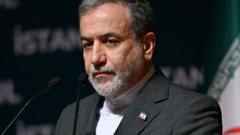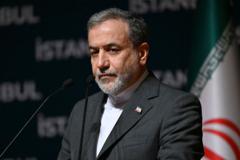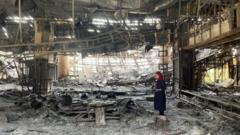In a heated exchange at the White House, President Trump declared he would "absolutely" consider bombing Iran again if intelligence suggested an imminent threat related to uranium enrichment. Following recent strikes on Iranian nuclear sites in retaliation for the ongoing Israeli-Iranian conflict, the president emphasized his stance on military action. Despite Iranian Supreme Leader Ayatollah Ali Khamenei's dismissive remarks regarding the effectiveness of US airstrikes, Trump maintained that significant damage had been inflicted on Iran's nuclear capabilities. Amidst these tensions, diplomatic negotiations appear stalled, with both nations asserting they have emerged victorious from the conflict.
Trump Open to Military Action Against Iran Amid Nuclear Tensions

Trump Open to Military Action Against Iran Amid Nuclear Tensions
In a recent press briefing, President Trump indicated he would contemplate further military strikes on Iran, reviving fears of escalating conflict.
President Trump’s comments come in the wake of renewed hostilities with Iran, where he expressed a willingness to use military force if deemed necessary. This statement highlights the volatility of international relations amidst rising nuclear concerns in Iran.
The recent escalation began with targeted Israeli airstrikes aimed at Iranian nuclear sites, intensifying an already tense atmosphere. Following two weeks of conflict, casualties have mounted, with Iranian health officials reporting over 600 deaths from air assaults while Israeli fatalities stand at around 28. Despite the destruction, Iranian officials claimed no significant advancements had been made in the nuclear program. As diplomatic channels remain closed, Trump suggested potential discussions on sanction relief had collapsed following aggressive rhetoric from Iranian leadership. The situation continues to evolve as both nations grapple with the implications of their actions on a broader regional scale.
As the situation develops, it remains to be seen how these events will influence future diplomatic relations between the US, Israel, and Iran.
The recent escalation began with targeted Israeli airstrikes aimed at Iranian nuclear sites, intensifying an already tense atmosphere. Following two weeks of conflict, casualties have mounted, with Iranian health officials reporting over 600 deaths from air assaults while Israeli fatalities stand at around 28. Despite the destruction, Iranian officials claimed no significant advancements had been made in the nuclear program. As diplomatic channels remain closed, Trump suggested potential discussions on sanction relief had collapsed following aggressive rhetoric from Iranian leadership. The situation continues to evolve as both nations grapple with the implications of their actions on a broader regional scale.
As the situation develops, it remains to be seen how these events will influence future diplomatic relations between the US, Israel, and Iran.























